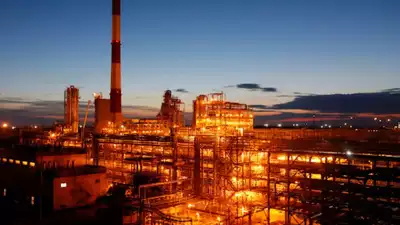
After the death of Iran’s president and the Saudi king’s illness, little changed in the oil industry
May 20, London (Reuters) – As Saudi Arabia’s crown prince postponed a trip to Japan due to his father, the king’s health, and Iran’s president perished in a helicopter crash, oil prices steadied on Monday despite political unrest in major producing nations.
By 0958 GMT, Brent had dropped 24 cents to $83.74 per barrel. In sluggish trading, the U.S. West Texas Intermediate (WTI) crude for June, which is scheduled to expire on Tuesday, fell 33 cents to $79.73 per barrel. At $79.3, the more actively traded July contract was down 28 cents.
Hardliner Iranian President Ebrahim Raisi, who was long viewed as the Supreme Leader Ayatollah Ali Khamenei’s successor, died in a helicopter crash in steep terrain close to the border with Azerbaijan on Monday, according to officials and state media.
The unexpected death of the president should not impact Iranian oil strategy because Khamenei retains ultimate authority and the final say in all matters pertaining to the state.
Separately, Japan’s Chief Cabinet Secretary Yoshimasa Hayashi announced that Saudi Arabia’s Crown Prince Mohammed bin Salman has postponed his planned Monday arrival in Japan due to a health concern with his father, King Salman.
According to MST Marquee’s Saul Kavonic, an energy analyst, the market is already used to Crown Prince Mohammed Bin Salman’s dominance in the oil industry.
“Continuity in Saudi strategy is expected regardless of this health issue,” he stated.
Another Russian energy complex was attacked in Europe in the meantime. A drone attack over the weekend caused damage to the Slavyansk oil refinery in the Krasnodar area, according to a story published on Monday by state-run TASS, which quoted a security official for the company.
Since Ukrainian forces established a new front earlier this month in the Kharkiv region of northeastern Ukraine, Russia has reported an increase in strikes on its territory.
According to Warren Patterson, head of commodities strategy at ING, “the oil market remains largely rangebound and without any fresh catalyst we will likely have to wait for clarity around OPEC+ output policy in order to break out of this range.”
On June 1, the Organization of the Petroleum Exporting Countries and its partners, or OPEC+, are supposed to convene.
“The market also appears increasingly numb to developments on the geopolitical front, likely due to the large amount of spare capacity OPEC is sitting on,” Patterson stated.
All Categories
Recent Posts
Tags
+13162306000
zoneyetu@yahoo.com



